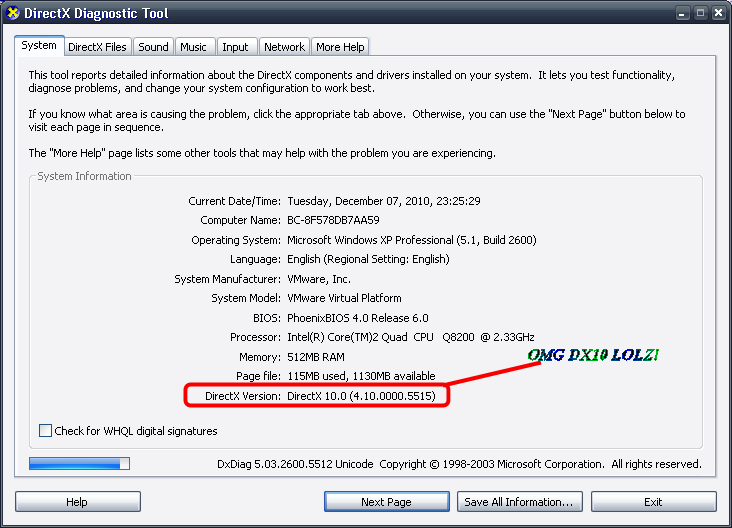

Support for Visual Studio 2010 and Visual Studio 2005īeginning with the June 2010 release, the DirectX SDK supports Visual Studio 2010. Known Issues with the June 2010 DirectX SDK
No dxcpl exe file code#

Use myFloat = (float)myInt type syntax instead. Expressions such as (int)myFloat = myInt are no longer valid.Left-Hand-Side typecasting is now illegal and will cause a compile error.The current draw or dispatch call being executed. abort - submits custom shader error messages to the information queue and terminates.errorf - submits custom shader error messages to the information queue.printf - submits custom shader messages to the information queue.New intrinsic functions have been added for better debugging support.The frexp intrinsic function has been updated to return a mantissa in the range of.HLSL has been updated with the following fixes and features: The June 2010 DirectX SDK adds the following new method to the ID3D11ShaderReflection interface: You are no longer required to use D3d10.dll to create and use an arbitrary length data object. The June 2010 DirectX SDK includes a D3dcompiler_43.dll that exports the new D3DCreateBlob function. However, your code will be cleaner and easier to maintain if you use the version-less Makes legacy data-type names equivalent to the new version-less data-type names. The June 2010 DirectX SDK removes versioning from several Direct3D data types that cross runtime versions. Version-less Naming of Cross-Runtime Data Types Modifications to the C++ declarations for XMFLOAT2A/3A/4A/4X3A/4X4A toīetter support these types in C++ templates.Use of Visual Studio style SAL annotations.
No dxcpl exe file windows#

The Summary pane has a new Direct3D Information section, that shows details about whatĭirect3D capabilities are present on the computer.In the Shader Debugger, it is possible to copy register and variable data to the clipboard.Immediately, rather than the first time they are read. In the Shader Debugger, there is a new toolbar button that enables the display of all constant registers/variables.The Object Table shows the size and shader model for each shader.The June 2010 version of PIX includes improvements to the PIX user interface:

Human-readable object name will provide a much more effective experience for the user. PIX will now display specific string data for objects in the Object Table and other user interface elements where a Direct3D enables developers toĪttach arbitrary data to objects in D3D code using the SetPrivateData API for application-specific usage. The June 2010 version of PIX supports naming for most resource objects However, Visual Studio 2005 will no longer be supported. The DirectX SDK will continue to support Visual The June 2010 DirectX SDK includes support for Visual Studio 2010. This version of the DirectX SDK contains the following new features, tools, and documentation.


 0 kommentar(er)
0 kommentar(er)
